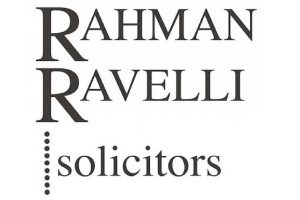Why businesses need to be aware of tax evasion

Aziz Rahman, of award-winning business crime solicitors Rahman Ravelli, explains how to make sure your company does not become involved in tax evasion.
Tax evasion is once again a live issue.
The Criminal Finances Act came into effect on September 30; creating an offence of corporate failure to prevent tax evasion. It is an offence that can lead to unlimited fines for companies and is hugely significant for those in business.
Until now, if someone working for a company was involved in tax evasion, that person could be prosecuted. Under this new Act, however, the company that person works for can be prosecuted. The only defence available to a company is that, at the time of the tax evasion, it had 
Before we talk about procedures, however, it is worth stressing the importance of being aware of the risks. Such awareness can prove vital in avoiding tax evasion problems. If a deal does not seem to make commercial sense for all parties, if it seems overly complicated and has been suggested “out of the blue’’ by someone who has never had dealings with you before, you have to be cautious. Such caution can be invaluable in keeping a company on the right side of the law.
Prevention
Having said that, nothing can be left simply to chance or risk awareness. Preventative measures must be introduced to make it difficult for anyone to use your company for tax evasion.
An accounting system that is suitable for the size and nature of the business and that is kept up to date and regularly reviewed will go a long way to reducing tax evasion opportunities. Carefully-defined rules on who has access to the accounts and how, and by whom, they are scrutinised will also make it difficult.
A well-devised whistle blowing procedure that means people can raise concerns about wrongdoing, safe in the knowledge they will be treated seriously and investigated, will also go a long way to deterring those who may think of evading tax.
Such a procedure needs to run in tandem with an ongoing effort to make staff and trading partners aware of the need to prevent tax evasion – or any other business crime – as it is in everyone’s interest to do so. Ongoing staff training can make sure that everyone is alert to the dangers.
These measures are not massively complex. Even if those in business feel they are not able to implement them, the right legal advice is available to assess a company’s vulnerability to tax evasion and recommend preventative measures.
If a company does ever come under investigation for tax evasion, such measures can be held up as proof that everything possible was done to prevent it: the defence of having reasonable prevention procedures.
Aziz Rahman is founder of Rahman Ravelli; a top-ranked business crime law firm in national and international legal guides.
www.rahmanravelli.co.uk









